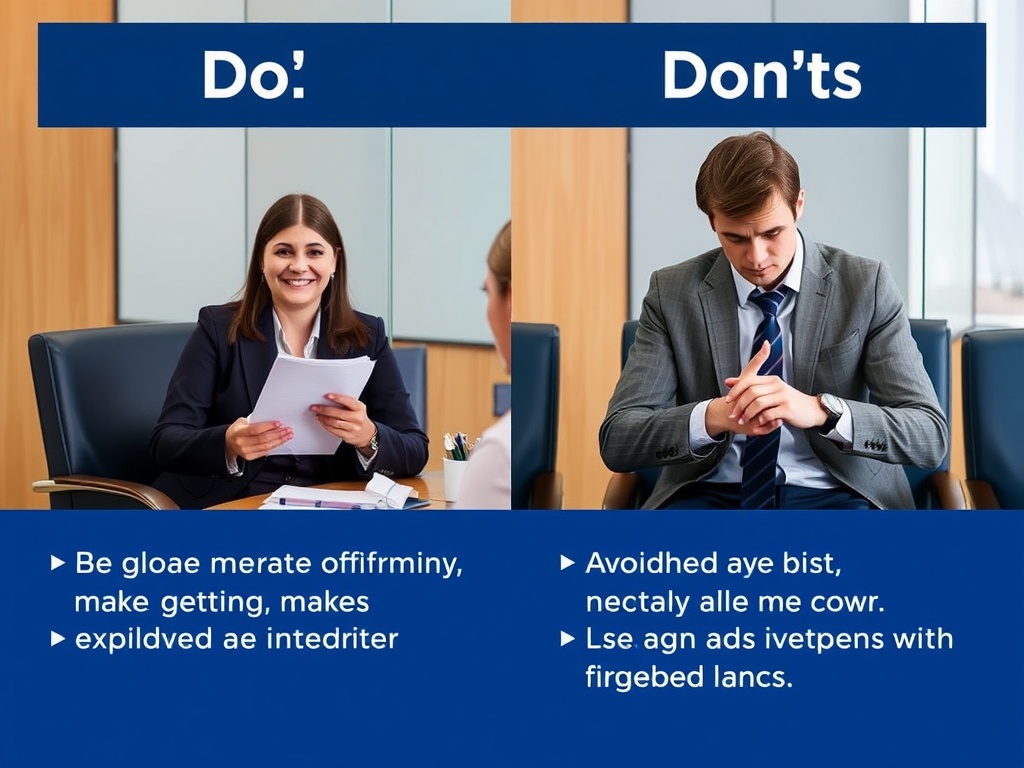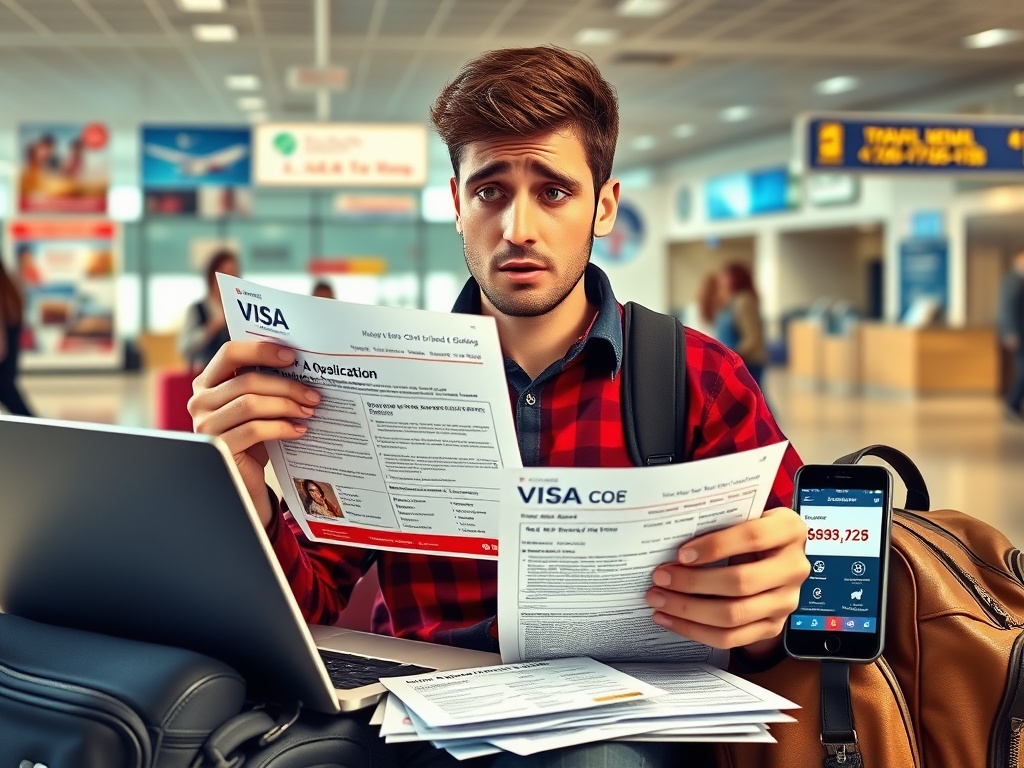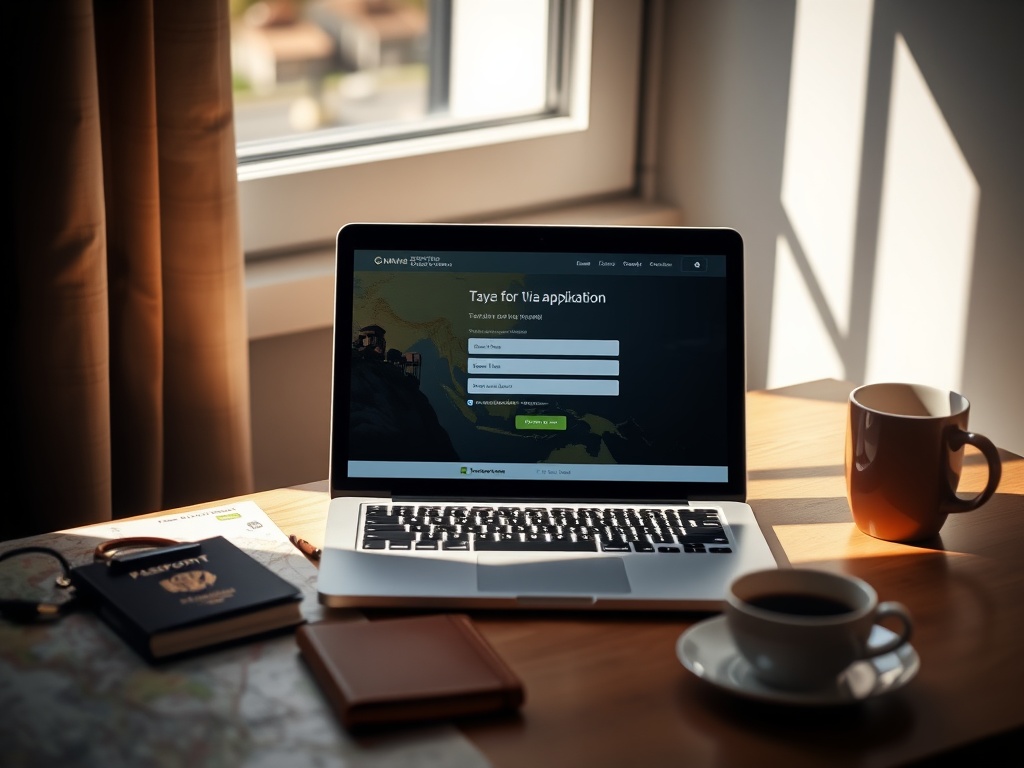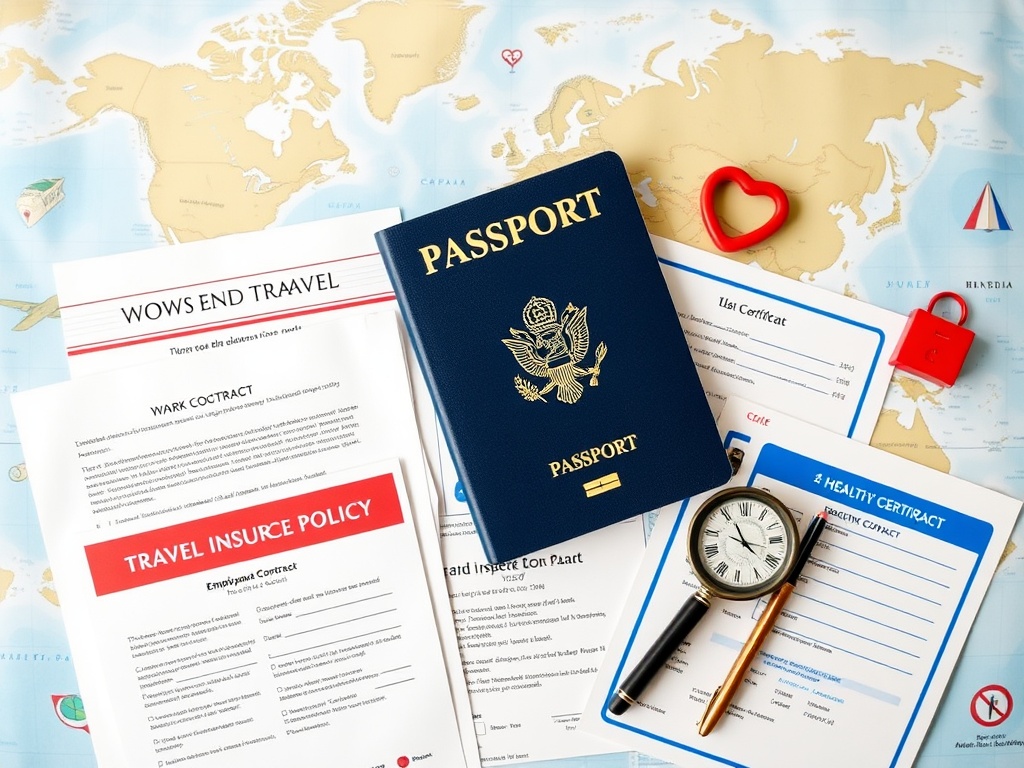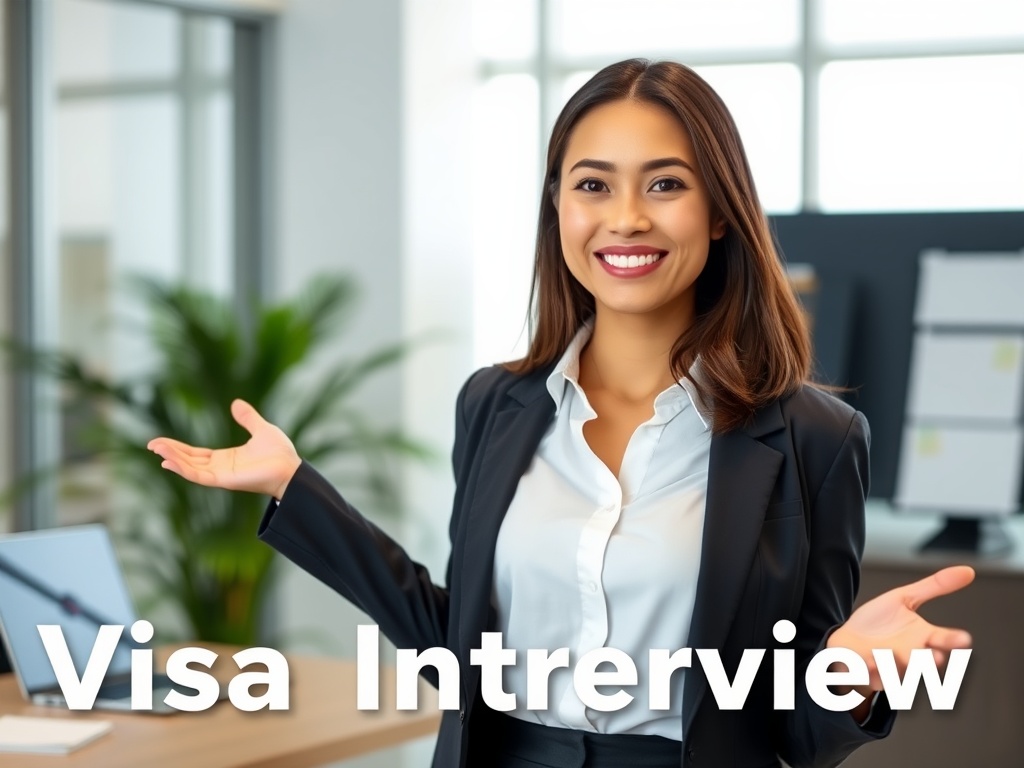
In the world of visa interviews, your appearance can significantly influence the outcome. A professional appearance not only reflects your seriousness about the application but also creates a positive first impression with the consular officer. Remember, this is not just about dressing well; it’s about showing respect for the process and the people involved.
Crafting a professional look involves several aspects, from attire to grooming. Below is a list of essential elements to consider when preparing for your visa interview:
- Attire: Choose formal or business casual clothing that is clean and well-fitted.
- Grooming: Ensure your hair is neat, and facial hair is trimmed or clean-shaven.
- Accessories: Keep jewelry minimal and conservative. Avoid flashy items that could distract.
- Shoes: Wear polished, appropriate footwear that matches your outfit.
- Overall Hygiene: Good personal hygiene is non-negotiable. Make sure you are fresh and presentable.
On the day of your visa interview, your appearance should be the least of your worries. To ensure you focus on what really matters, consider the following tips:
- Plan Your Outfit in Advance: Select and try on your clothing a day or two before the interview.
- Get Plenty of Rest: A good night’s sleep will help you look and feel your best.
- Practice Your Posture: Stand tall and walk confidently as you approach the interview.
- Stay Calm: Remember that your appearance is just one aspect of your overall presentation.
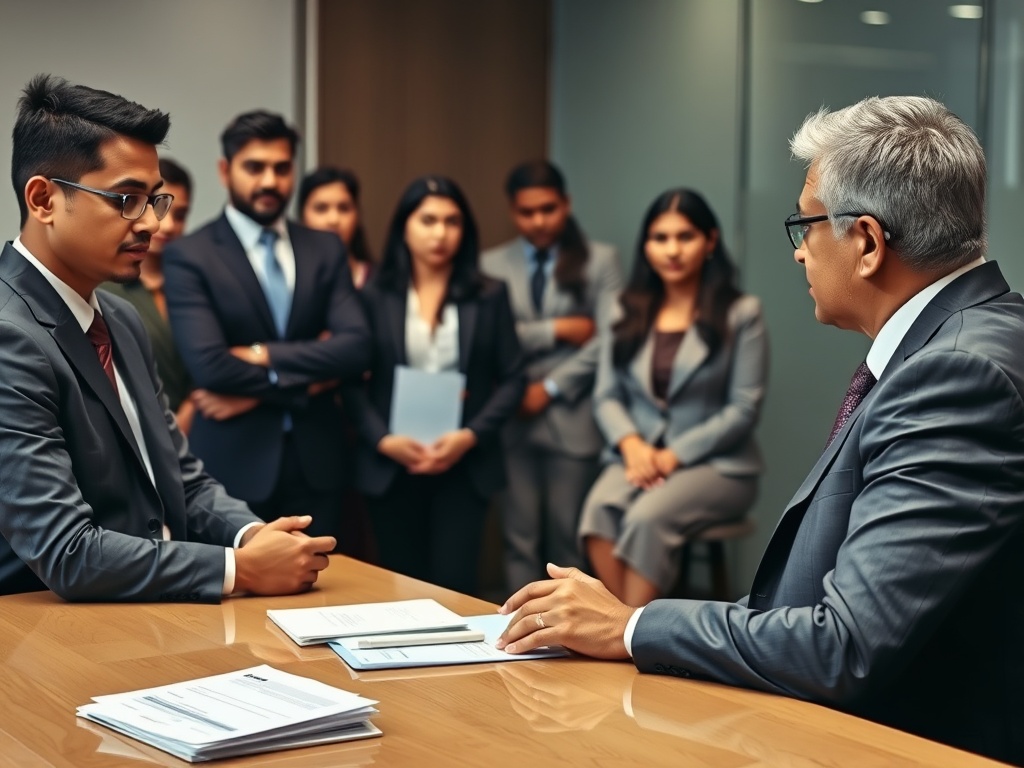
When it comes to your visa interview, being prepared for the questions that may arise can make all the difference. Anticipating the inquiries and structuring your responses will not only demonstrate your readiness but also help to convey confidence to the consular officer. Understanding common questions and formulating thoughtful answers ensures that you can navigate the conversation smoothly while emphasizing your genuine intentions.
During the interview, you may encounter a variety of questions that probe into your personal background, travel intentions, and ties to your home country. For instance, it is likely that you will be asked about the purpose of your visit. Here, clarity and honesty are crucial. Be prepared to explain your reasons succinctly, whether it’s for tourism, business, or education. Providing specific details can help reinforce your case.
Another frequent question pertains to your financial situation. The officer may ask how you plan to fund your trip. It is essential to have supporting documents ready that reflect your financial stability, such as bank statements or proof of employment. Your ability to demonstrate that you can support yourself during your stay without resorting to unauthorized means will strengthen your application.
Perhaps one of the most critical areas of inquiry will focus on your ties to your home country. Questions about your employment, family, and property ownership can arise, and it’s vital to answer them convincingly. Officers want to ensure that you have compelling reasons to return home after your visit. Articulating your commitments—whether it’s a job, family responsibilities, or ongoing studies—can effectively alleviate any concerns regarding your intentions to overstay your visa.
Lastly, be prepared for questions about your travel history. If you have previously traveled to other countries, sharing those experiences can work in your favor. It illustrates your capability to adhere to visa regulations and return as promised. However, if you have faced any issues in the past, it’s best to address them openly while highlighting how you’ve learned and grown from those experiences.
In the realm of visa interviews, honesty is not just a virtue; it is a necessity. When addressing your background, travel intentions, and financial circumstances, being transparent can significantly bolster your chances of a successful application. Consular officers are trained to detect inconsistencies, and any hint of dishonesty can lead to immediate distrust, jeopardizing your visa application. Therefore, understanding the importance of forthrightness is essential in navigating the interview process.
Demonstrating your sincerity begins with your responses to common inquiries. When asked about the purpose of your travel, providing a clear and honest explanation fosters trust. It’s important to elaborate on your intentions—whether for leisure, business, or education—while backing them up with appropriate documentation. This not only showcases your preparedness but also affirms your genuine reasons for visiting the country.
Additionally, consider your financial status. When discussing how you plan to fund your trip, being upfront about your financial situation and presenting supporting documents—like bank statements—can enhance your credibility. If you have any concerns regarding your finances, addressing them openly allows the officer to understand your circumstances better, which can lead to a more favorable evaluation.
The topic of prior travel experiences may arise during your interview, and here too, honesty is key. If you have had any visa denials or overstays in the past, it’s crucial to own up to those situations. Explain the context and emphasize what you have learned since then. This not only displays your growth but also illustrates your commitment to adhering to immigration laws moving forward.
Moreover, discussing your ties to your home country plays a significant role in establishing your intentions to return. Be honest about your employment, family obligations, and any property ownership. These factors act as compelling evidence of your commitment to returning home after your visit, which is a top priority for consular officers.
In the high-stakes environment of a visa interview, what you say is only part of the equation. Your body language plays a pivotal role in how your message is perceived. Subtle cues such as posture, gestures, and eye contact can convey confidence and sincerity, which can greatly influence the outcome of your interview. By mastering these non-verbal signals, you can enhance your overall presentation and make a lasting impression on the consular officer.
Your body posture can speak volumes about your self-assurance and readiness. Sitting up straight and maintaining an open posture not only conveys confidence but also shows that you are engaged in the conversation. Conversely, slouching or crossing your arms may project defensiveness or discomfort.
- Stand Tall: Keep your back straight and shoulders back. This posture can make you appear more confident and approachable.
- Avoid Closed Positions: Crossing your arms can be interpreted as a sign of resistance or anxiety. Instead, keep your arms relaxed by your sides or use them to gesture as you speak.
Making appropriate eye contact is crucial in establishing trust and rapport. Your eyes can communicate your sincerity and interest in the dialogue. However, it’s important to strike a balance; too much eye contact can come off as aggressive, while too little may suggest disinterest or evasiveness.
Here are some practical tips for effective eye contact:
- Engage Naturally: Aim to make eye contact when speaking and listening. This shows that you are present and value the conversation.
- Break It Up: If you find it uncomfortable to maintain constant eye contact, look away occasionally to ease the intensity while still remaining engaged.
Using hand gestures can effectively emphasize points you are making, but they must be used judiciously. Overly animated gestures can distract from your message, while too few may make you seem stiff.
Consider these guidelines:
- Be Natural: Use gestures that feel comfortable and intuitive. They should complement your speech rather than overshadow it.
- Control the Pace: Ensure your gestures are in sync with your speech. This coordination helps maintain a smooth flow during the interview.
By being mindful of your body language, you can communicate confidence and poise without uttering a single word. Remember that the consular officer is not only evaluating your verbal responses but also your non-verbal cues. Mastering these body language secrets can be a game-changer in securing a successful visa interview.
The journey through a visa interview can be daunting, and while preparation is crucial, it is equally important to recognize potential missteps that can jeopardize your chances of approval. Understanding these common pitfalls allows you to steer clear of them and present yourself as a trustworthy and responsible applicant. Mistakes may seem minor, but they can leave a lasting negative impression on consular officers who are trained to look for red flags.
One of the most serious errors you can make during your visa interview is providing inaccurate or misleading information. Even minor discrepancies in your application can raise suspicions, leading to potential denial. It is vital to ensure that all details—whether related to your personal background, travel history, or financial situation—are truthful and consistent. If you have any past issues, be open about them and explain the context. This transparency fosters trust and demonstrates your integrity, both of which are essential in the eyes of consular officers.
While confidence is a key attribute during your interview, there is a fine line between exuding self-assurance and coming off as arrogant. Being overly casual or dismissive of questions can signal to the officer that you are not taking the process seriously. It is crucial to strike a balance by demonstrating confidence without undermining the importance of the interview. Listen carefully to each question, respond thoughtfully, and maintain a respectful demeanor throughout your conversation. This approach not only showcases your readiness but also highlights your respect for the interview process.
Another significant pitfall is failing to bring the necessary documentation to support your application. Inadequate preparation can lead to confusion and distrust. Officers expect applicants to provide relevant documents that verify their claims, such as proof of financial stability and ties to their home country. Before your interview, compile all necessary paperwork and double-check for accuracy. Being organized not only reflects your seriousness about the application but also facilitates a smoother interview process. Remember, having the right documents ready can be the difference between approval and denial.
When preparing for your visa interview, one of the most crucial aspects is ensuring that you have all necessary documentation organized and readily available. This diligence not only reflects your seriousness about the process but also instills confidence in the consular officer regarding your intentions. Missing or incomplete documents can lead to unnecessary complications or even a denial of your application. To help you navigate this essential preparation step, we will outline the key documents you need to bring along and how to present them effectively.
Before heading to your visa interview, it’s imperative to compile a selection of cornerstone documents that substantiate your application. These documents provide the consular officer with vital information about your identity, purpose of travel, and financial stability. Make sure to double-check that everything is current, accurate, and properly organized.
- Visa Application Form: Complete and printed application form, signed where required.
- Passport: A valid passport with at least six months of validity remaining beyond your planned return date.
- Photographs: Recent passport-sized photographs that adhere to specific visa requirements.
- Financial Documents: Bank statements, pay stubs, or proof of employment that demonstrate your ability to support yourself during your stay.
- Travel Itinerary: Copies of flight bookings, accommodation arrangements, and any planned activities.
- Supporting Letters: If applicable, letters from employers, educational institutions, or family members that can support your application.
Having the right documents is only part of the equation; how you present them is equally important. A well-organized portfolio can make a positive impression and facilitate a smoother interview process. Here are some strategies to effectively manage your paperwork:
- Use a Folder: Place all documents in a sturdy folder or binder for easy access.
- Order Matters: Organize your documents in the order that they will be requested during the interview for seamless presentation.
- Be Prepared for Questions: Familiarize yourself with each document and be ready to explain its significance to your application.
While you may have all your primary documents in order, be prepared for the possibility that the consular officer may request additional information or clarification. This could include:
- Proof of Ties to Home Country: Documents demonstrating family connections, property ownership, or ongoing educational commitments.
- Travel History: Copies of previous visas or travel itineraries that show your history of adhering to immigration regulations.
By anticipating these requests and having supplementary documents ready, you can further demonstrate your preparedness and commitment to complying with visa regulations.
Once your visa interview concludes, the journey does not end there; in fact, it marks a new phase of your application process. The actions you take in the aftermath can significantly influence the overall impression you leave with the consular officers. Engaging in proper follow-up etiquette demonstrates your professionalism and genuine interest in the visa application process. It’s not merely about waiting for a response; it’s about maintaining a proactive approach that can enhance your chances of approval.
After your interview, it’s advisable to send a thank-you email to the embassy or consulate where your interview took place. In this message, express your gratitude for their time and consideration. Doing so not only reflects your appreciation but also reinforces your commitment to adhering to the visa process. Be sure to keep the email concise and polite, reiterating your enthusiasm for the opportunity to visit their country. Avoid discussing the outcome of the interview in this correspondence; instead, focus on expressing your hope for a favorable decision based on your qualifications.
While waiting for a response, it is crucial to remain informed about the status of your application. Most embassies and consulates provide tracking options for visa applications. Regularly check the official website for updates, as this shows diligence and keeps you in the loop. Additionally, if the consular office has indicated a timeline for processing, be patient but prepared to follow up if you have not received a response within that period. If you do need to inquire about your application, ensure that your communication is respectful and to the point. Avoid making frequent inquiries, as this may be perceived as impatience.
Ultimately, the follow-up etiquette you adopt after your visa interview can significantly impact the perception of your application. By expressing gratitude, staying informed, and communicating respectfully, you position yourself as a serious and responsible applicant—qualities that resonate positively with consular officers.
